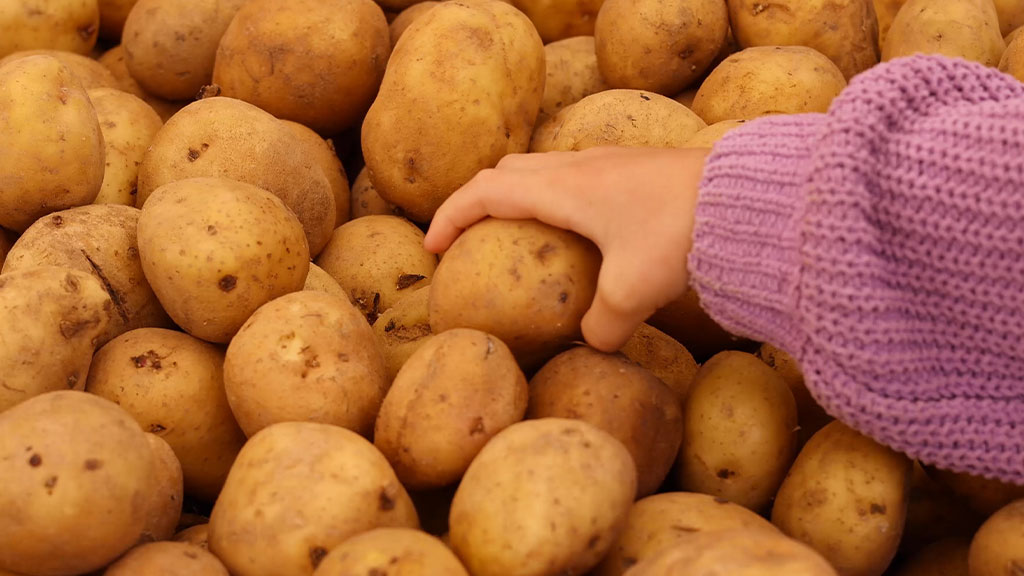High MRLs for glyphosate in food
Products containing glyphosate are traded internationally. At the same time, protein-containing pulses in particular represent a major opportunity for European farmers. This is why the definition of maximum limits and the usability of desiccation technologies have a major influence on innovations and opportunities for sustainable agriculture.
Why do some foods have up to 200 times higher limits for glyphosate?
While the MRL (maximum residue limit) for glyphosate in the EU is 0.1 mg/kg for most fresh plant foods, there are up to 200 times higher limits (2, 10 or 20 mg/kg) for dried beans/lentils/peas, mustard seeds, wheat, rapeseed, linseed, sunflower seeds, rye, oats, millet and soya beans.
( https://ec.europa.eu/food/plant/pesticides/eu-pesticides-database/start/screen/products (as of 20 April 2024))
This means that even after the ban on desiccation with glyphosate in the EU, the import of food desiccated with glyphosate into the EU can be maintained.
Particularly in the case of pulses with their high protein content, new market opportunities are also arising due to the protein strategy of the EU and, for example, Germany (https://www.europarl.europa.eu/RegData/etudes/BRIE/2023/751426/EPRS_BRI(2023)751426_EN.pdf ; https://www.bmel.de/DE/themen/landwirtschaft/pflanzenbau/ackerbau/eiweisspflanzenstrategie.html ). And the trend towards vegetarian and vegan foods actually supports the opportunities for European farmers who are not allowed to use glyphosate for desiccation even further (https://www.cbi.eu/market-information/grains-pulses-oilseeds/dried-lentils/market-potential).
This distorts market opportunities for farmers, further exposes food to glyphosate and at the same time harms the environment worldwide.
Why is there desiccation of crops instead of natural ripening?
Desiccation can increase quality and secure the harvest in unfavourable weather conditions. The basic idea of desiccation therefore makes a lot of sense.
Desiccation of plants is the targeted drying out of a plant before harvesting. This is done, for example, to make harvesting easier, to improve quality, to synchronise the time of harvest or to avoid harvest losses due to rain or frost.
Desiccation is preferably used for cereals, pulses and oilseeds that ripen unevenly. In the case of potatoes, desiccation enables the targeted formation of firm-skinned tubers.
The plants can be desiccated chemically, mechanically or by electric current. The herbicide glyphosate is frequently used for this purpose worldwide (except for potatoes). It penetrates the root system, but also leaves residues in the harvest and, for example, in the unripe grains left in the field, which are then eaten by small mammals and insects.
Does the use of glyphosate pose significant risks to biodiversity?
In line with the important precautionary principle, the answer is yes. In 2023, the EFSA (European Food Safety Authority) assessed the future use of glyphosate in a comprehensive scientific opinion as a template for political decision-makers. In its brief summary, it writes: “With regard to biodiversity, the experts found that the risks associated with the representative uses of glyphosate are complex and dependent on several factors. They also pointed to the lack of harmonised methods and agreed specific protection requirements. Overall, the available information does not allow for clear conclusions on this aspect of the risk assessment….”. (https://www.efsa.europa.eu/de/news/glyphosate-no-critical-areas-concern-data-gaps-identified )
The future of desiccation and regional cultivation fairness
crop.zone is working on replacing desiccation with glyphosate in many areas of application with electric current so that specially increased threshold values are no longer necessary. This also applies to pulses. This is good for the consumer and also for the environment. At the same time, European farmers who are now prohibited from desiccation with glyphosate will once again have the opportunity to safeguard their harvests while maintaining high quality. This will also open up new and growing markets, for example in the field of protein crops. This is because desiccation secures harvests, even if it gets too wet again before the harvest – also due to climate change

